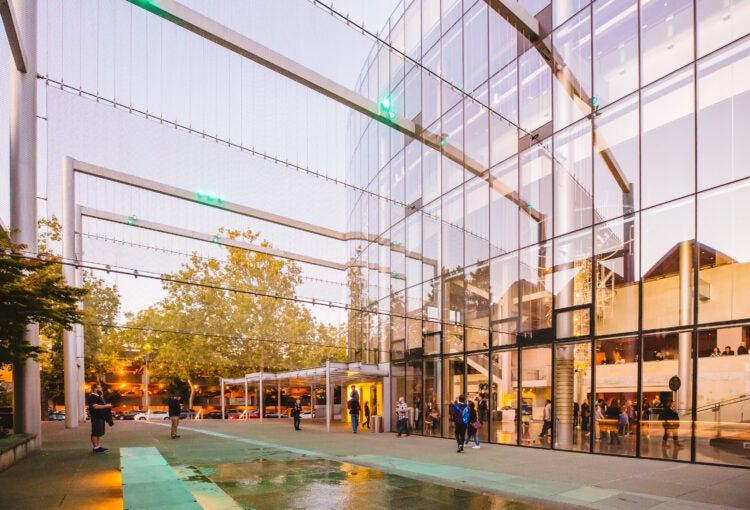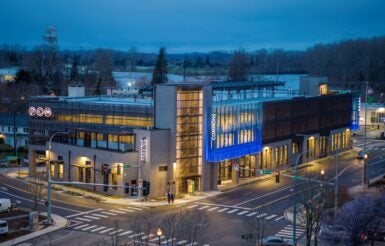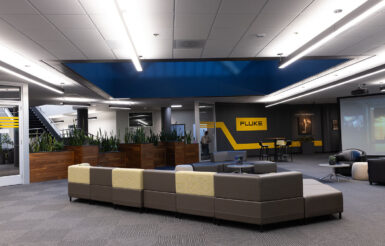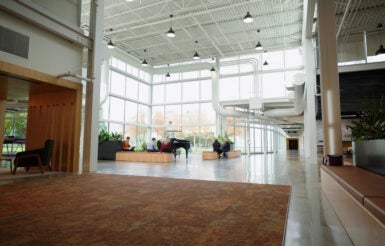Project Overview
Shining a spotlight on the lighting needs of a busy performance venue
With a packed schedule of performances and a constant stream of people in and out of different spaces, Marion Oliver McCaw Hall was struggling with their back-of-house lighting. Owned and operated by the City of Seattle and Seattle Center, the premiere performance venue’s spaces had fluorescent fixtures that were on 24/7, even when unoccupied. They needed a smarter and more efficient lighting system – one that could provide flexibility, energy savings, and improved control across its many spaces.
“Lighting is critical to everything we do here at McCaw Hall,” said John Tangeman, the theater’s Front of House Manager. “We need well-lit, safe spaces for our crews and groups to do their work.”
To find the best solution for their needs, the McCaw Hall team partnered with the City of Seattle’s Office of Sustainability and Environment, engineering consultant Ecotope, and Seattle City Light to design and install an improved lighting system. The group selected and installed Luminaire Level Lighting Controls (LLLC), a type of networked lighting control system that integrates sensors and load controllers into each individual fixture.
Introducing ease of use and flexibility
Ideal for a variety of highly utilized spaces, LLLC was installed in dressing rooms, hallways, restrooms, kitchens, and storage areas. These areas also now feature occupancy sensors to increase efficiency. If a space has been empty for 15 minutes, the lights dim to 50%, and after 30 minutes they turn off. This has reduced unnecessary energy use, delivering significant long-term energy savings.
“LLLC gave them the ability to sweep the lights off every day at 1am,” said Avery Kanode, Energy Management Analyst at Seattle City Light. “Some rooms didn’t have switches because the lights were hardwired to be on 24/7. LLLC allowed them to create switches without drilling any holes in the walls to run those wires. The lights can turn on and off, but they can also fade up and down, so they’re fully dimmable now.”
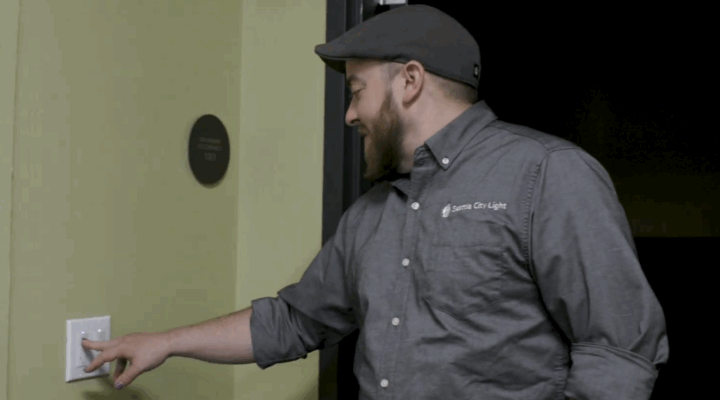
Adapting the system for people and performance
Tangeman provided his work groups time to familiarize themselves with the new lighting system. During this period, some crew members noticed that lights were turning on in a space visible to the audience. Thanks to the flexibility of LLLC, Tangeman was able to quickly make adjustments, preserving the quality of the audience’s experience. Today, the system operates seamlessly—and no one needs to remember to flip a switch on or off.
“There is a hallway where our guest services staff gather for their pre-show meeting,” said Tangeman. “If you’re the first one in for the meeting, you go down a hallway, and each light goes on as they walk down the hallway. They tell me they feel like they’re on a red carpet.”
Results
After selecting LLLC, Seattle City Light analyzed the energy savings potential for the full project, including a full analysis of the fixtures and controls used. “We were able to offer them an incentive for the fixture and control savings, and a LLLC bonus incentive for a grand total of $28,000.”
With this new system in place, McCaw Hall is expected to save 39,000 kWh of energy annually. The project has been so successful that a second phase of LLLC upgrades is being planned.
Tangeman said that while theaters are complex spaces with unique lighting needs, the flexibility of LLLC makes the system an ideal solution. “Installing this technology into McCaw Hall has been a great way to see the efficiencies that LLLC technology brings to any facility,” said Tangeman.
Tips for successful lighting upgrades
-
Save yourself time with a preview
Tangeman recommends doing an initial walkthrough with workgroups and crew chiefs to get their buy-in and understand how they want the lights to perform. This will avoid a lengthy punch list after installation.
-
Allow for a transition period
Providing occupants time to adjust to the new system will allow for easy adjustments that result in smoother operations and a better experience.
-
Don’t miss out on incentives
The Washington State Fluorescent Ban goes into effect by the end of 2029. Kanode recommends getting in touch as soon as possible for your commercial or industrial lighting upgrade while fixture and control incentives are still available.
About McCaw Hall
Marion Oliver McCaw Hall is one of Seattle’s premier performance venues, owned and operated by the City of Seattle and Seattle Center. Opened in 2003 after a major renovation, McCaw Hall is home to the Seattle Opera and Pacific Northwest Ballet, and it also hosts concerts, lectures, community events, and special performances throughout the year.
Photo by Sunita Martini courtesy of McCaw Hall/City of Seattle
